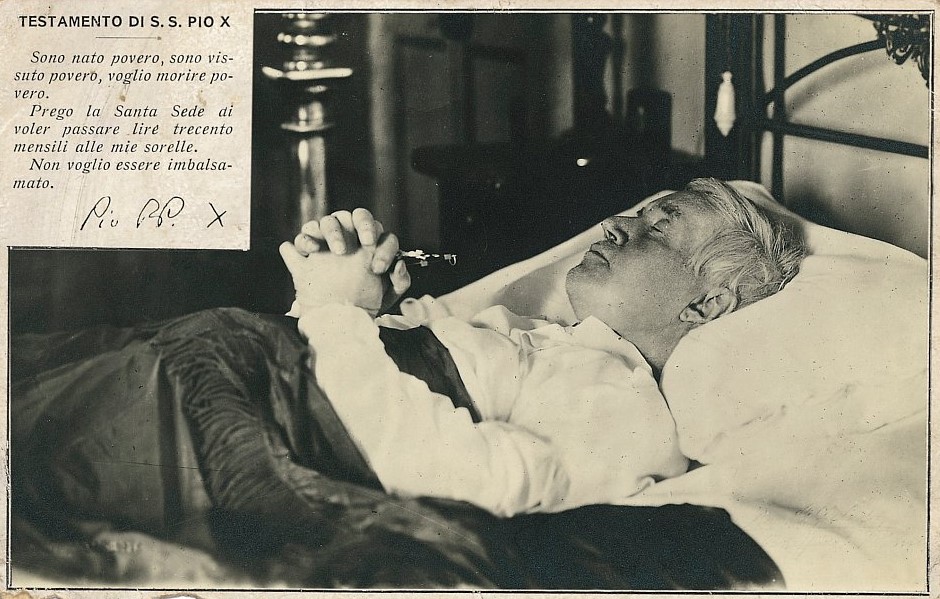|
Plinio Corrêa de Oliveira
The Two Aspects of Death: Sordid and Repulsive v. August and Epic
Legionário, Sao Paulo, nº 544, January 10, 1943 |
|
|
Pope St Pius X in his deathbed, August 1914 Death has two aspects. The first is the biological aspect: the decomposition of an unstable chemical aggregate that can no longer be maintained, with an outpouring of fluids and a deplorable and irrepressible organic failure against all composure and propriety. After having spent a lifetime producing disgusting things, the human body—an ideal of physical beauty for all artists—ends up transforming itself into something disgusting. The human being struggles throughout life so that his body does not become garbage. Baths, perfumes, ointments, medicines, artifices of hygiene and medicine, everything is used to give the body an appearance of stability and permanence in perennial and incorruptible life. Death comes and reveals the most hidden, deepest and most characteristic reality of his body: it begins turning into garbage long before life is completely extinguished. In this respect, death is sordid and repellent. But death has another aspect under which it is an eminently human fact, the most remarkable and, in a sense, the most august fact of life. Death pulls man out of everyday vulgarity—the web of trifles that usually make the fabric of humanity’s ordinary life—and brutally puts him face to face with the tremendous mystery of his eternity, showing that every person’s life is an epic—a frustrated or accomplished epic. In this way, death rises above its sordid and repellent aspect. Even more, its squalor contributes to making it grander in its tragic magnificence. That is why death has been the inspiration for most sublime masterpieces, from Greek tragedy to Beethoven’s 3rd Symphony. Who does not realize that heroism, which can dignify and ennoble man the most, has close affinities with death? That is the reason why humanity has always surrounded death with somber solemnities and pomps full of gravitas. It is a tribute we owe to ourselves and death. In a special way, the Church—who revealed to mankind the most profound meaning of life and death—has given funeral commemorations the just and appropriate splendor for the suffrage of souls and the lessons she presents for the meditation of the faithful. |
|


